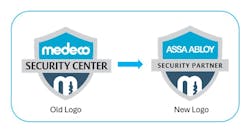Some cynics will say that Californians have never meet a government regulation they didn’t like. Whether that statement is accurate is up for debate. But one fact that is certain, California is perhaps the most regulated state in the nation and the repercussions of some of these initiatives have had a national impact. One high-profile regulation passed by California voters in 1986 stemmed from the mounting evidence that showed the devastating effects of certain toxic chemicals to the environment and human health. That initiative became the Safe Drinking Water and Toxic Enforcement Act of 1986, better known by its original name of Proposition 65.
So, what does this have to do with the locksmith or security hardware industry? The chances are that if you are one of the myriad security, lock and door hardware manufacturers who reside in California, sell in California or distribute product in California, your product potentially contains one of at least 900 chemicals that the State has deemed dangerous and requires written and graphic warnings to consumers who purchase it. Prop 65 affects all consumer products sold or distributed in California, including textiles, footwear, hard goods, DIY products, toys, juvenile products, stationery, electrical/electronic items and more. This regulation also includes keys, door hardware, locks, access control panels, key chains and fobs; you get the idea, almost anything that could contain heavy metals like mercury, cadmium and lead or toxic substances like arsenic and polonium.
Unlike the early years when enforcement was shoddy at best, with the stricter requirements that went online with Prop 65 this past August 2018, stiffer penalties and more stringent enforcement has non-compliant and ill-informed vendors feeling the pinch.
The newly updated Prop 65 states that any business in California must provide a “clear and reasonable” warning to consumers if any of the products they sell contains a certain amount of any one of the listed chemicals which are known to cause cancer or reproductive toxicity. The only companies that escape enforcement are those that employ nine or fewer people. Another caveat is that, even exempt, out-of-state companies may need to comply with Proposition 65 if they sell products to a larger retailer who is not exempt. Most large retailers and Big Box stores have a large consumer footprint in California and are thus required to comply with Proposition 65. These large retailers will often require its suppliers – regardless of size or location – to comply with Proposition 65 even if they are otherwise exempt since the larger retailer must comply.
However, Edward P. Sangster, Daniel W. Fox, Caitlin C. Blanche of the global law firm K&L Gates said in a January 2017 corporate newsletter that “30 years after its enactment, California’s Safe Drinking Water and Toxic Enforcement Act of 1986 remains an undiminished irritant to businesses who sell products that are used in California… compliance with Proposition 65 has remained problematic for businesses for several reasons. The list of chemicals subject to its requirements continues to swell. Companies often do not know that their products contain a chemical subject to Proposition 65 until after they receive notice from a prospective plaintiff. Sometimes they fail to realize that a new chemical listing requires a warning on a product that formerly did not need one. At the same time, private “bounty hunters” make their livings by pouncing on violations.”
Mark McRae, the Director of Engineering for Hager Companies, which is corporately-based in St. Louis, Mo., and has several other offices and manufacturing facilities around North America agrees that Prop 65 has its issues and they have evolved over the years. Hager manufactures a wide-range of access control and door hardware products and is one of the larger players in the industry. McRae believe the Prop-65 movement started with the best interests of the public in mind but thinks those best intentions have been muddled over the years.
“It has grown to include such a huge collection of chemicals that practically everything must be labelled, from a cup of coffee to a ceiling fan to a lock, thus the value of the label has been diminished. Evaluating if your product really does exceed the threshold levels prescribed is very difficult and often inconclusive, so when in any doubt, it’s safer to label the product whether it truly exceeds the chemical threshold limits or not as the ‘bounty hunter’ mentality to enforcing the law has grown over the last few years,” laments McCrae.
Mark Berger, President and Chief Product Officer for the Securitech Group, Inc. in Queens, New York agrees.
“The easiest compliance method for a small manufacturer is to say their products contain materials known to the State of California that are known to the state to cause cancer, or birth defects or other reproductive harm. It might not be accurate, but it is virtually impossible to receive verification from every supplier in the production chain,” Berger concurs.
Some manufacturers were worried that the increased scrutiny of Prop 65 would affect relationships with distributors and suppliers and possibly force them to increase costs to their customers. However, both McCrae and Gary Morehart, the Director of Engineering at Kaba Ilco Corp., state that has not been the case. Morehart says that Kaba Ilco has absorbed any additional compliance expenses without passing along any cost or raising prices.
McRae adds: “The chemicals involved are typically used in the aesthetic finishing of the products with the manufacturing processes following industry standards. There currently are no viable alternate processes available.
“Initially we were not affected much as the enforcement of the law was not strong and customers were not inquiring about it. With the recent revisions and renewed intertest, it caused us to reevaluate our policies as to how we would label our products to comply and provide the best service to our customers.”
Morehart says compliance is a process; one that is constantly under review at both the manufacturing level and with their partners.
“Initially, recently and continually, we evaluate our product and product components for the range of naturally occurring and synthetic chemicals known to cause cancer or birth defects or other reproductive harm. (https://oehha.ca.gov/proposition-65/proposition-65-list). A third-party compliance group was retained to assist in the evaluation and declaration request to our vendors (suppliers). Recently we updated product labeling and sent disclosure notification to our distribution network,” Morehart points out.
He adds: “The third-party compliance group sent notifications to our suppliers requesting disclosure to ensure we have identified all component parts that contain the specific chemicals. Notification and declaration documents were sent to our network of distributors informing them of products supplied by Kaba Ilco Corp. that contain chemicals listed under Proposition 65 by the California Office of Environmental Health Hazard Assessment. Recently updated warning labels are applied to the specific products which contain listed chemicals.”
The sticking point according to the K&L Gates law firm (http://www.klgates.com/warning-proposition-65-warning-requirements-have-changed-01-04-2017) is that in the past, California’s Office of Environmental Health Hazard Assessment (“OEHHA”) promulgated regulations specifying rather generic warning language would be deemed “clear and reasonable.” Those so-called “safe harbor” warnings are, therefore, at the heart of Proposition 65 compliance for many companies. They have spent years modifying product labels, websites, and marketing literature to incorporate the safe-harbor warnings.
OEHHA has adopted new regulations that change the requirements for the content and format of warnings to gain safe-harbor protection. Any company that manufactures, distributes, or sells any product that contains any one of the approximately 900 listed chemicals “known to the [State of California] to cause cancer or reproductive toxicity” and requires Proposition 65 warnings will soon have to overhaul its warning program.
For companies like Kaba Ilco and Hager, that could mean a lot of extra work.






